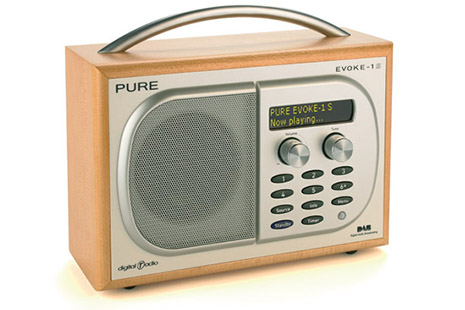DIGITAL RADIO, as an evolving technology, has been around for over twenty years. Now, after much plotting, planning, tests and delays, it will start up in Australia in the middle of 2009. It comes with a joint promise: better audio quality and potentially more diversity of audio content. But since serious discussions about its introduction here first took place about fifteen years ago, the digital media world, and the audio aspects of it specifically, have changed dramatically. The internet has blossomed. MP3 players and other mobile digital devices have proliferated. Podcasts in their various forms are now commonplace. Our listening habits and options have shifted and multiplied. And digital radio in Britain has struggled. It is into this ever-mutating media environment, where much audio content has been decoupled from its broadcast origins or actually starts as a digital non-broadcast creation, that digital radio launches itself with all the high hopes of a new medium or a very old one with new credentials. But will it succeed? Will consumers buy a digital radio receiver? Why would they? How will broadcast radio in its digital form make its mark in the jungle of competing hybrids? Jock Given from the Institute for Social Research at Swinburne University of Technology gives Peter Clarke an unvarnished look at the odds for this digital latecomer.
Has radio’s future passed?
Fifteen years after it was first proposed, digital radio is almost here. Has it come too late, asks Jock Given in this interview with Peter Clarke
Jock Given & Peter Clarke 5 May 2009 220 words

Pure Digital’s Evoke 1S DAB digital radio.
Share
Share on Bluesky
Share on Linkedin
Share on Twitter
Share on Facebook
Share via Email
Print this article
Share
Share on Bluesky
Share on Linkedin
Share on Twitter
Share on Facebook
Share via Email
Print this article
Share
Share on Bluesky
Share on Linkedin
Share on Twitter
Share on Facebook
Share via Email
Print this article
Jock Given & Peter Clarke
Peter Clarke is a Melbourne based broadcaster, writer and educator. He pioneered national talkback on Australian radio as the inaugural presenter of Offspring (now Life Matters) on ABC Radio National. Podcast theme created by Ivan Clarke, Pang Productions.
Topics: internet | Jock Given | media | Peter Clarke | podcast | radio
Related Articles
 Other Voices
At 25, Wikipedia shows news doesn’t need to look like news
Joshua Benton
21 January 2026
Much can be learnt from how Wikipedia constructs shared knowledge about what’s happening in the world right now
Other Voices
At 25, Wikipedia shows news doesn’t need to look like news
Joshua Benton
21 January 2026
Much can be learnt from how Wikipedia constructs shared knowledge about what’s happening in the world right now
 Other Voices
Another reckoning (with China)
Afra Wang
17 December 2025
A vast country can be seen in different but not necessarily contradictory ways
Other Voices
Another reckoning (with China)
Afra Wang
17 December 2025
A vast country can be seen in different but not necessarily contradictory ways
 Books & arts
One hell of a story
Mark Baker
28 October 2025
Why write a book about the Battle of Shah Wali Kot, and why now?
Books & arts
One hell of a story
Mark Baker
28 October 2025
Why write a book about the Battle of Shah Wali Kot, and why now?
 Books & arts
Screening multicultural Australia
Ien Ang
28 October 2025
How migrants have made their presence felt in an evolving TV landscape
Books & arts
Screening multicultural Australia
Ien Ang
28 October 2025
How migrants have made their presence felt in an evolving TV landscape